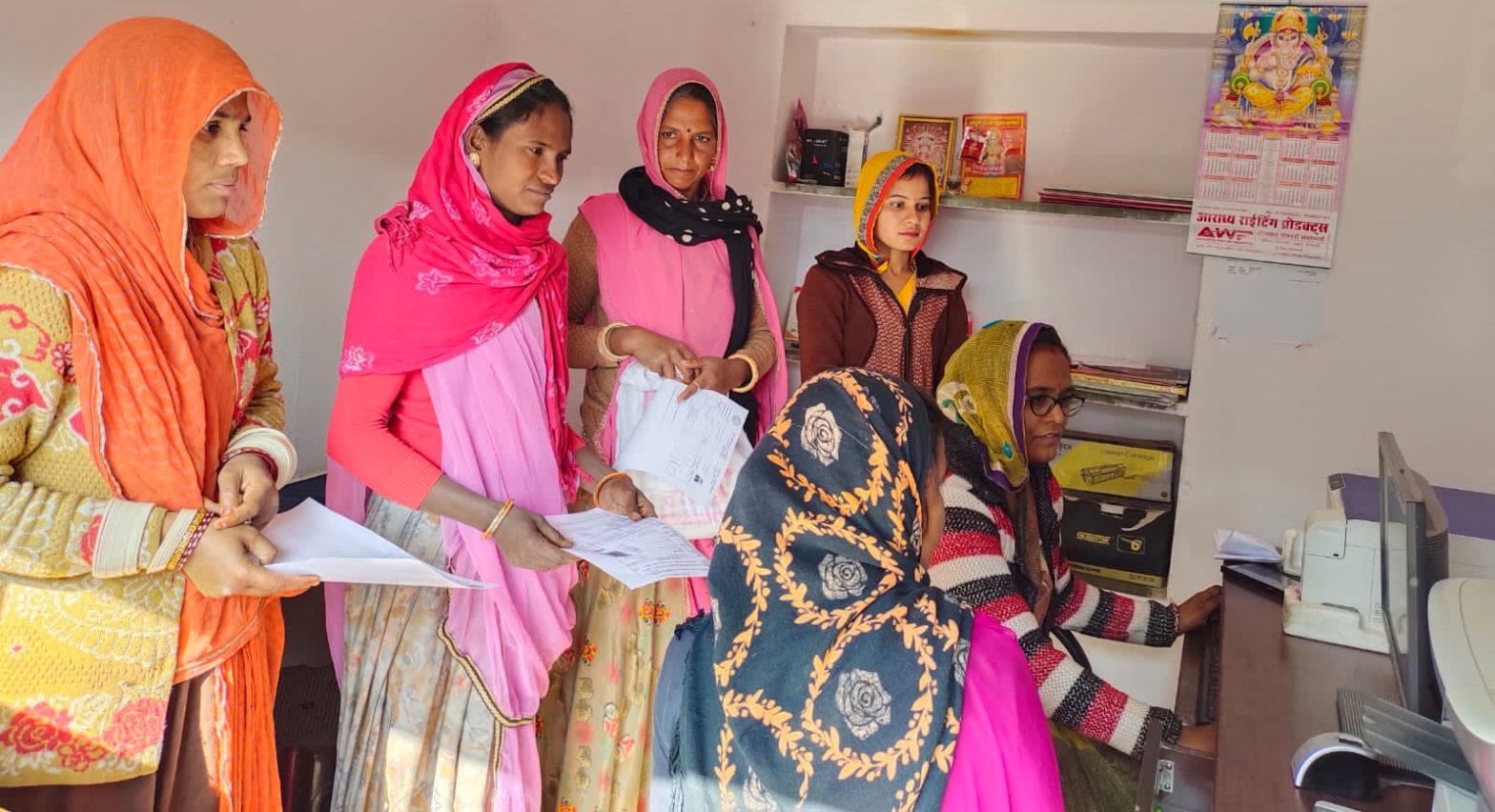
Saving Rajasthan’s villagers from online fraud
After villagers in Rajasthan lost their hard earned money in online frauds, a woman entrepreneur from amongst them decided to change this.

After villagers in Rajasthan lost their hard earned money in online frauds, a woman entrepreneur from amongst them decided to change this.
The government of Rajasthan has promised to allocate 1.33 crore mobile phones to women. But would they know how to use them?
Through digital literacy, Yasmin Bano is changing the lives of the women in rural Rajasthan. A mother of two, Yasmin got married at the age of 16. Soon she had big responsibilities but no stable income. So she decided to complete her class X and enroll in a digital literacy program.
Moved by the many incidents of online frauds in her village of Hirapur, she started a digital training center that helps locals access their pensions, bank transfers and social service schemes.

Yasmin now earns more than Rs 10,000 per month.
Women in India, especially rural India, struggle to access digital devices and the internet without help from the men of their family.
The use of digital technologies by rural people is very low compared to urbanites. This makes rural women – who are already last in the social hierarchy – suffer the most.
Stories like that of Bhanvati Devi, however, give hope.
Bhanvati, a successful entrepreneur from the Dholpur district, said that she struggled to manage the hisab-kitab (bookkeeping) of her small business till she took digital literacy training.
“It helped me manage transactions easily through UPI (unified payment interface),” she said.
Also Read | Will rural women rise up against digital patriarchy?
With her new grown confidence, Bhanvati also learned to access digital platforms for bulk procurements and making sales in the local markets.
But despite the significant digital growth rate of 13 percent per year, only 31 percent of the rural population uses the internet when compared to the 67 percent of its urban counterpart.
In the current wave of digital India, where online transactions have grown exponentially, particularly since COVID-19, rural women have found themselves excluded.
Mobile phones are still viewed as a risk to a woman’s reputation before marriage. Then after marriage using them is viewed as an interruption to caregiving. Afraid of being judged, most women prefer to speak on the phone within the walls of their own home.

Limited access to smartphones, internet, mobile banking and market-based skills further hampers job opportunities for women in rural areas.
Harsh realities like these make women like Yasmin and Bhanvati true changemakers who are sowing the seeds of hope for other women.
Women in rural India do not earn sustainable incomes.
According to Statista, India’s female labour force participation is at 19.03 percent. Which means less than one-fifth of rural women engage in formal economic activities. There are many factors which make the problem worse. Women have significant unpaid household responsibilities. About 35% are married before 18.
The limited mobility of these women also makes it difficult for them to get minimum wage jobs outside their villages.
Also Read | Is digital planning working for India’s villages?
E-governance initiatives of the government strive to create an infrastructure across states to make government services accessible in the remotest corners of the country. There is invariably a connection between the digital divide and poverty in the way that disproportionate distribution of wealth hinders access to technology and vice versa.
Studies by the UN Chronicle show that over 40 percent of the world’s population lacks access to computer education. This is the hardest issue to address as it requires change in both education and mentality as well as investments in e-services.
Social media has the power to connect people from across the world. While social media can be used as a tool for making your voice heard, it can also be used to propagate hate speech and amplify echo chambers.
In this case the role of the state is crucial in balancing interests and ensuring flow of information. The Indian government’s Digital India mission tries to achieve exactly this by striving to make technology accessible even in the rural pockets of India.
Manjari Foundation, a social development organisation, has been playing a pivotal role towards the economic empowerment of women through providing digital literacy and entrepreneurship programmes.
Women entrepreneurs have been using Katori, Upaya and Saakti applications promoted by the organisation.
Also Read | Digital tech in curriculum enriches participatory learning
The graam haat mobile based application by Manjari is revolutionizing the field of animal husbandry. On this unique platform, people across locations can buy and sell domestic animals. So far it has been downloaded and installed by 2,318 entrepreneurs.
The Rajasthan government’s promise to allocate 1.33 crore mobile phones to women is a big step towards empowering them and will hopefully be implemented soon.

This opportunity can be harnessed to train women to use the digital devices and access various government services and entitlements. The use of social media and registering on e-commerce platforms can be promoted.
It can empower women to start new enterprises and access new knowledge and skills through using online platforms which can enhance opportunities for income generation.
Also Read | How poor breadwinners hit digital hurdle
Naresh Nain is the Program Director at Manjari Foundation. Soma Banerjee and Sadiya Anjum are working as Project Executives at Manjari Foundation.
In the lead image women can be seen at a digital center in Rajasthan (Photo by Manjari Foundation)